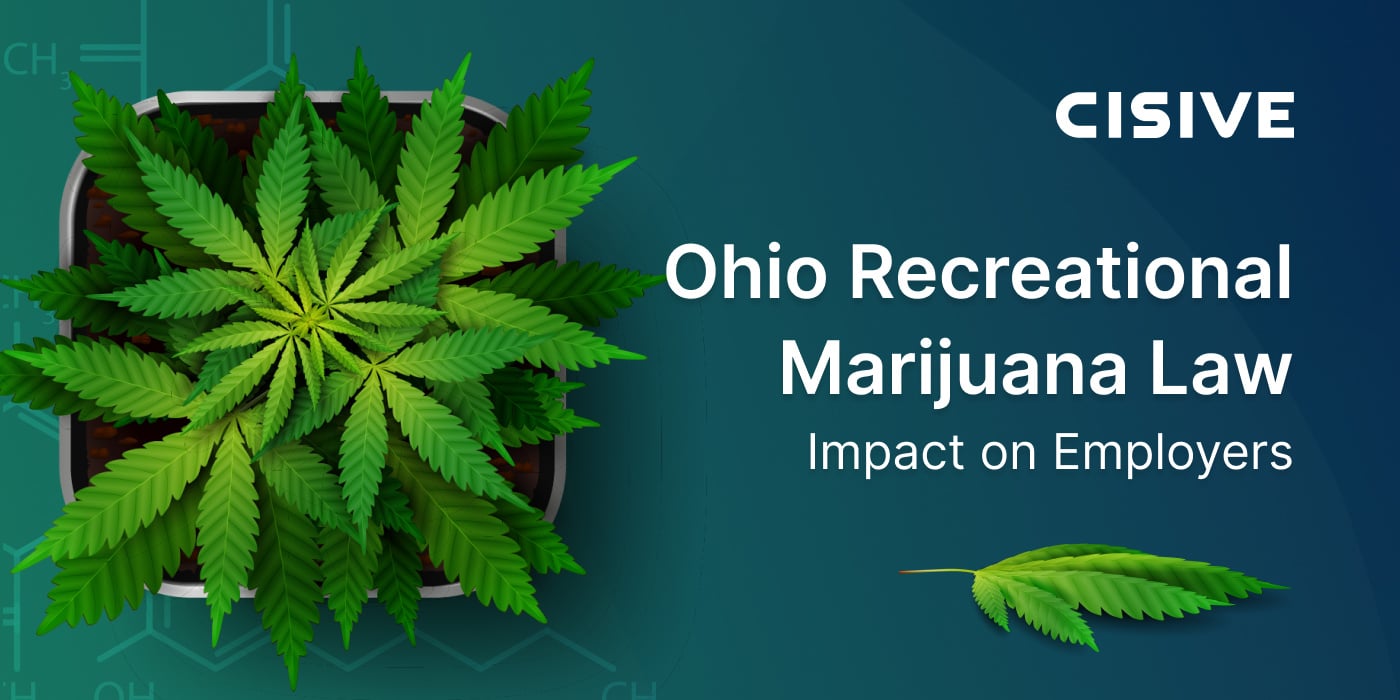

The regulatory landscape for background screening compliance is evolving under the Trump...

With Ohio recently passing its recreational marijuana law, many employers are asking: what does this mean for us? For HR professionals, recruiters, and talent managers in highly regulated industries, understanding the potential implications of this legislation is crucial. The good news? Despite Ohio's move to legalize recreational cannabis, the impact on employment practices—particularly around drug testing and workplace policies—remains minimal.
Key Takeaways:
|
In November 2023, Ohio voters approved a ballot measure to legalize the adult use of marijuana. The legislation allows individuals 21 years and older to possess and purchase recreational adult-use cannabis. This move reflects a growing national trend toward marijuana legalization, but it’s important to note that, despite this progress, marijuana remains illegal under federal law.
Ohio joins more than 20 other states in allowing recreational marijuana use, a significant shift for residents and lawmakers alike. However, despite public access to cannabis, the law acknowledges the rights of employers to maintain drug-free workplaces, particularly in industries where federal compliance and safety concerns are paramount.
Ohio’s new law primarily focuses on personal cannabis use and retail sale. The bill explicitly states that while the possession and use of marijuana for recreational purposes is legal within state lines, employers are under no obligation to change their existing workplace drug policies. This includes pre-employment drug screenings and random or scheduled drug tests during employment.
Specifically, the law does not:
For HR professionals and talent managers, the most significant takeaway from the Ohio marijuana law is that there’s essentially no change when it comes to employment practices. Employers remain in full control of their drug policies and testing procedures.
Highly regulated industries such as healthcare, financial services, and transportation, where federal law or safety considerations often mandate zero tolerance for drugs, remain unaffected. In fact, even companies in less-regulated sectors can still require drug screenings as part of their hiring processes and enforce policies that prohibit the use of marijuana by employees, regardless of the state law.
Here are a few critical points for employers:
Employers should also consider updating employee handbooks and workplace communications to reflect their stance on marijuana use, ensuring there is no ambiguity for current or prospective employees.
While Ohio’s legalization of recreational marijuana represents a shift in public policy, the impact on employers is minimal. HR professionals in highly regulated industries can breathe easy knowing their current drug policies are protected by state law. However, it's always wise to stay informed and ensure your organization’s drug testing policies are up to date and compliant with both state and federal laws.
As laws around marijuana use continue to evolve across the country, it's more important than ever to have a reliable partner for navigating workplace compliance. Cisive’s team of experts can help you develop or refine your drug testing program to ensure you're meeting industry standards and maintaining a safe, compliant workplace. Contact us today to speak with an expert about your drug testing policies.
Author: Michael Kendrick
Bio: Senior Manager of Corporate Compliance at Cisive.
Let's Connect on LinkedIn
The regulatory landscape for background screening compliance is evolving under the Trump...

Always consult with legal counsel to navigate the nuances of employment laws and protect your...
.webp?height=200&name=BLOG_%20Quarterly%20Compliance%20Blog%20(Winter%202026).webp)
This quarter’s compliance article roundup underscores the expanding impact of AI, data privacy, and...